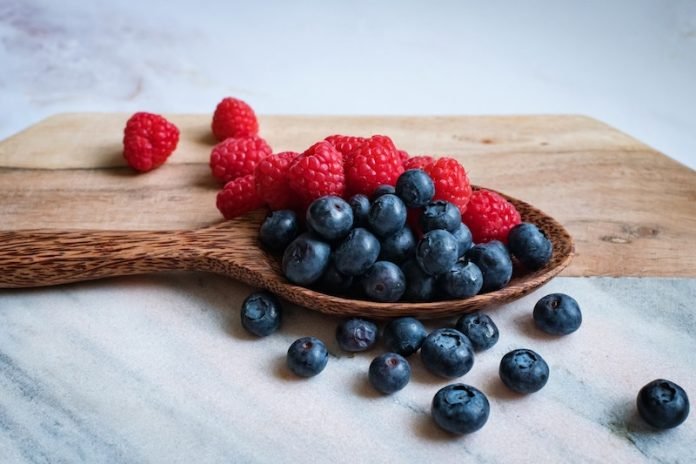
As a type 2 diabetic, it is essential to be mindful of the foods you consume, including fruits. Fruits are packed with vitamins, fiber, and antioxidants that offer numerous health benefits.
However, some fruits have a high glycemic index (GI) that can spike your blood sugar levels, making it crucial to choose wisely.
In this review, we’ll discuss the best and worst fruits for type 2 diabetes.
What is type 2 diabetes?
Type 2 diabetes is a metabolic disorder that affects the body’s ability to produce or use insulin effectively. Insulin is a hormone that regulates blood sugar levels, and when the body becomes resistant to insulin or can’t produce enough of it, blood sugar levels rise, leading to several health complications.
Best fruits for type 2 diabetes
Berries
Berries are an excellent choice for people with type 2 diabetes because they are low in carbohydrates and have a low GI.
Berries such as strawberries, blueberries, and raspberries are also high in fiber, antioxidants, and vitamins that provide numerous health benefits.
A cup of strawberries contains about 12 grams of carbohydrates, while a cup of raspberries has only 7 grams.
Avocado
Although technically not a fruit, avocados are low in carbohydrates and high in healthy fats, fiber, and potassium, making them an excellent choice for people with type 2 diabetes.
Avocados are also rich in antioxidants and anti-inflammatory compounds that protect against various diseases.
A medium-sized avocado contains about 17 grams of carbohydrates, with 13 grams of fiber.
- Cherries
Cherries are low in carbohydrates and have a low GI, making them a perfect fruit for people with type 2 diabetes.
Cherries are also high in antioxidants that reduce inflammation and protect against various diseases. A cup of cherries contains about 19 grams of carbohydrates.
Grapefruit
Grapefruit is a low-calorie fruit that’s high in fiber, vitamins, and antioxidants that benefit people with type 2 diabetes.
Grapefruit is also low in carbohydrates and has a low GI, making it an excellent fruit choice. Half a grapefruit contains about 11 grams of carbohydrates.
Apples
Apples are high in fiber and antioxidants that provide numerous health benefits, including reducing the risk of heart disease and certain types of cancer.
Apples are also low in carbohydrates and have a low GI, making them an excellent fruit for people with type 2 diabetes.
A medium-sized apple contains about 25 grams of carbohydrates, with 4 grams of fiber.
Worst fruits for type 2 diabetes
Watermelon
Watermelon is a high GI fruit that can spike blood sugar levels, making it a poor fruit choice for people with type 2 diabetes.
Although watermelon is low in carbohydrates and calories, it is high in sugar, with a high GI. A cup of watermelon contains about 11 grams of carbohydrates.
Pineapple
Pineapple is another high GI fruit that can spike blood sugar levels, making it a poor fruit choice for people with type 2 diabetes.
Pineapple is high in sugar and carbohydrates, with a cup containing about 22 grams of carbohydrates.
Mangoes
Mangoes are high in sugar and carbohydrates, making them a poor fruit choice for people with type 2 diabetes.
A cup of mangoes contains about 28 grams of carbohydrates, with a high GI that can spike blood sugar levels.
Grapes
Grapes are high in sugar and carbohydrates, with a high GI that can spike blood sugar levels. Although grapes are rich in antioxidants, they are not a good fruit choice for people with type 2 diabetes. A cup of grapes contains about 27 grams of carbohydrates.
Dried fruits
Dried fruits such as raisins, dates, and prunes are high in sugar and carbohydrates, making them a poor choice for people with type 2 diabetes.
Although dried fruits are high in fiber and antioxidants, they are also calorie-dense and can spike blood sugar levels. A small box of raisins contains about 34 grams of carbohydrates.
Fruit juice
Fruit juice, although derived from fruits, is a poor choice for people with type 2 diabetes.
Fruit juice is high in sugar and carbohydrates and lacks fiber, which slows down the absorption of sugar into the bloodstream.
Drinking fruit juice can quickly spike blood sugar levels and increase the risk of health complications. A cup of orange juice contains about 26 grams of carbohydrates.
In conclusion, fruits are an essential part of a healthy diet, but people with type 2 diabetes need to be mindful of the fruits they consume.
Low-GI fruits such as berries, avocados, grapefruit, and apples are excellent choices, while high-GI fruits such as watermelon, pineapple, mangoes, and grapes should be avoided.
Dried fruits and fruit juice are also high in sugar and carbohydrates and should be consumed in moderation.
Eating a variety of fruits in moderation can help maintain blood sugar levels and reduce the risk of health complications associated with type 2 diabetes.
If you care about diabetes, please read studies about the key cause of type 2 diabetes, and this eating habit could help reduce the risk of type 2 diabetes.
For more information about nutrition, please see recent studies about unhealthy plant-based diets linked to metabolic syndrome, and results showing ultrasound may help reverse type 2 diabetes.
Copyright © 2023 Knowridge Science Report. All rights reserved.



